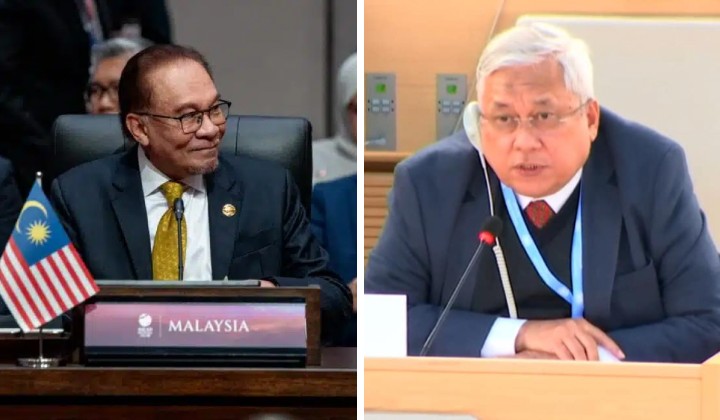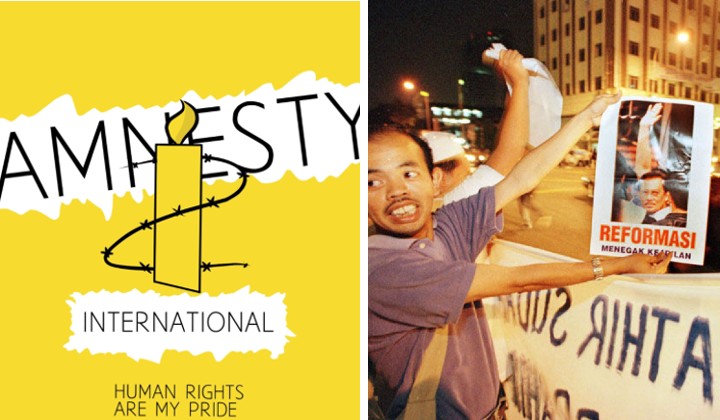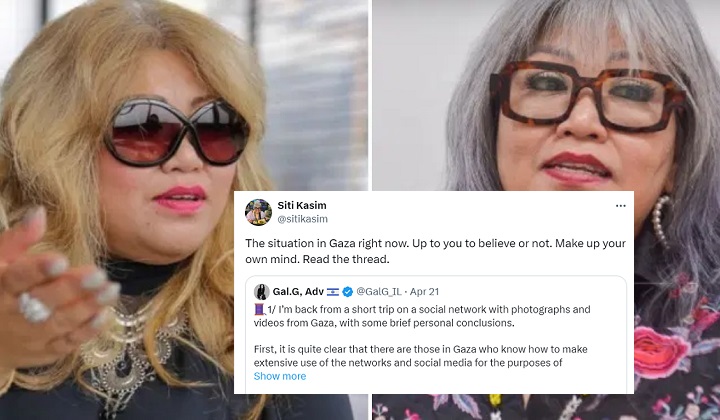Malaysia’s Strong Voice In United Nations: Standing Up For The Silenced
Amidst the high-stakes symphony of the United Nations Human Rights Council, a voice from Malaysia rises, challenging the status quo and amplifying the silenced stories of Palestine and Uyghur.

Subscribe to our FREE Newsletter, or Telegram and WhatsApp channels for the latest stories and updates.
In the grand auditorium of the United Nations Human Rights Council (UNHRC) in Geneva, Switzerland, where the world’s narratives intertwine like the complex harmonies of a rock opera, Malaysia took to the stage, not with instruments but with conviction.
Special Advisor to the Foreign Ministry on Humanitarian and Reconstruction and human rights activist Datuk Ahmad Azam Ab Rahman, who was part of the Organization of Islamic Cooperation (OCI) delegation, delivered a performance that will leave an indelible mark on the hearts and minds of those present.
With only 90 seconds on the clock—a tightrope walk of time that would make even the most seasoned rockstars baulk—Ahmad Azam launched into a fervent plea for the rights of Palestinians and Uyghurs.
The rule is strict: exceed your time by even a second, and the microphone is cut off, immediately passing the floor to the next speaker.
There was an instance when the American representative was cut off mid-sentence as their time expired, leaving them visibly flustered.
It was a moment that underscored Malaysia’s role on the world stage: not as a mere spectator but as a voice of conscience, willing to spotlight injustices others might skirt around.
After mentioning issues in Uyghur and Kashmir last year, 2023, representatives from China and India approached me, clearly displeased, asking for a copy of my speech as a form of protest.
Ahmad Azam on challenges that come with addressing specific countries when giving a speech.
The UN sessions are essentially a ‘Narrative War’ waged through diplomatic channels to advocate for various interests.
Yet, the power dynamics are skewed in favour of the five permanent members with veto power: the United States, United Kingdom, Russia, China, and France.
Echoing the Spirit of Global Solidarity and Justice
Why should Malaysians care about distant struggles in Palestine and China’s Xinjiang?
Empathy knows no borders, and injustice anywhere is a threat to justice everywhere.
Malaysia’s stance is more than diplomatic posturing; it reflects a deeply ingrained sense of solidarity with the oppressed, a melody that resonates with its people’s core values.
Facing down giants, Malaysia stood its ground, undeterred by the potential backlash from global powerhouses.
In a world where might often trump right, Malaysia punched above its weight class, echoing the defiant spirit of rock and roll rebels who refuse to be silenced.
Adding a significant layer to this narrative, Prime Minister Datuk Seri Anwar Ibrahim, with his leadership, has bravely refused to be a pawn in the geopolitical contest between superpowers, standing up for truth and justice.
This stance highlights Malaysia’s commitment to these universal values and showcases its willingness to navigate complex international waters with integrity, courage and pragmatism.
Malaysia has told the EU and US to stop trying to drag it into its rivalry with China. Anwar Ibrahim went on to accuse the West of 'China-phobia', while also noting that Beijing is in fact his nation's largest foreign investorpic.twitter.com/cil4rEA7RT
— BRISL (@BRI_SL) March 9, 2024
Diplomatic Dance: Navigating the Nuances of Global Justice
Malaysia’s stand is a reminder that size does not dictate the strength of one’s voice nor the righteousness of one’s cause.
As Malaysians, supporting these causes and understanding the complexities of international diplomacy isn’t just about foreign policy; it’s about championing human dignity and freedom.
It’s about being part of a global chorus that demands better for our fellow human beings, regardless of where they are.
This commitment, however, is played out on a stage where not every note is straightforward, and sometimes, silence speaks volumes.
When it comes to voting on resolutions concerning the Uyghurs, Malaysia’s choice to abstain might seem, at first glance, like a discordant note in its symphony for justice.
Despite all the talk, Malaysia kept quiet during a key vote at the UN Human Rights council on debating the Uyghur situation. I interviewed some prominent Uyghur activists who were upset by the lack of support. – https://t.co/LSQyy9a4gz
— MartinVengadesan Journalist/Author/Musician (@MartinVengades1) October 12, 2022
However, this decision is far from hypocrisy; it reflects Malaysia’s intricate dance within the complex web of international relations.
In this context, abstention is not an absence of opinion but a strategic manoeuvre.
It allows Malaysia to maintain its diplomatic relations and leverage on multiple fronts while still advocating for human rights in less confrontational ways.
Strategic Harmony: Malaysia’s Measured Approach to Global Advocacy
This tactic is emblematic of Malaysia’s understanding that the path to influencing global human rights practices is not always through confrontation but through careful negotiation and strategic alliances.
By abstaining from certain votes, Malaysia retains the flexibility to be an effective mediator and advocate for human rights, navigating the delicate balance between principle and pragmatism.
Malaysia’s approach does not diminish its commitment to human rights but highlights a sophisticated understanding of how to effect change internationally.
This is evident in its call to reform the veto power at the UN.
BREAKING: Malaysia calls for UN VETO power to be abolished.
— Khalissee (@Kahlissee) March 9, 2024
American and British governments have done a lot of damage by exercising the power of Veto against Gaza ceasefire resolutions.
Remove the Power of Veto 🔥 pic.twitter.com/WPppELpMN9
Like a skilled musician who knows when to play loudly and when to rest for greater impact, Malaysia’s actions are calculated moves in the intricate performance of diplomacy.
This strategy allows Malaysia to remain an influential voice in advocating for the rights of Palestinians, Uyghurs, and other marginalized communities worldwide, ensuring that its melody of justice and fairness is heard amidst the complex harmonies of global relations.
READ MORE: Empowering Voices: A Malaysian Initiative On Uyghur Women’s Rights
READ MORE: [Watch] Unity In Heat: Malaysians Rally In Mega Gathering For Palestine Amidst Diverse Support
Share your thoughts with us via TRP’s Facebook, Twitter, Instagram, or Threads.




